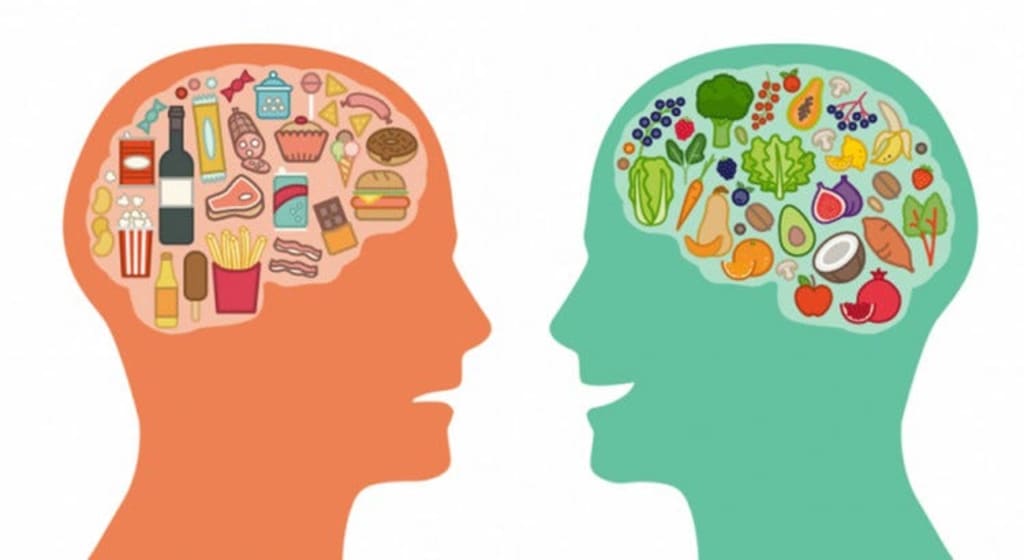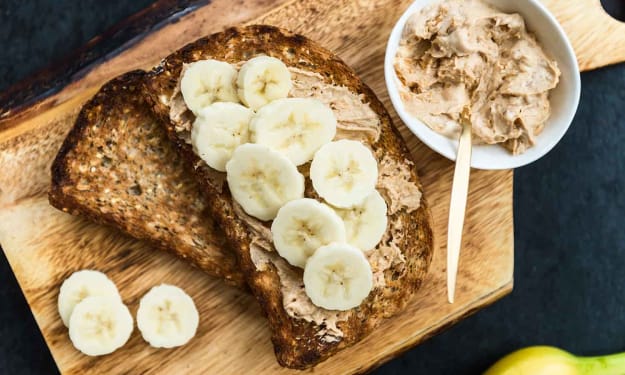The Mind Diet: Unleashing the Power of Nutrition for Mental Well-being
Table of Contents Understanding the Gut-Brain Axis Nutritional Deficiencies and Mental Health The Role of Inflammatory Foods on Mental Health The Mediterranean Diet and Mental Health The Impact of Sugar and Processed Foods on Mental Health The Benefits of a Plant-Based Diet for Mental Health Conclusion

Have you ever stopped to consider the impact of your diet on your mental health? In recent years, there has been a growing awareness and scientific evidence suggesting a strong connection between what we eat and how we feel. The food we consume doesn't just fuel our bodies; it also plays a crucial role in our mental well-being. In this blog post, we will explore the fascinating world of nutrition and its impact on mental health, providing you with practical tips for improving your mental well-being through dietary choices.
Understanding the Gut-Brain Axis
Did you know that your gut and brain are in constant communication with each other? This intricate connection, known as the gut-brain axis, has a significant influence on your mental health. The gut microbiota, a vast community of microorganisms living in your digestive system, plays a crucial role in regulating your mood and brain function.
Research suggests that the health of your gut is closely linked to your mental well-being. Therefore, maintaining a healthy gut-brain axis is essential for good mental health. How can you achieve this? By making mindful dietary choices. Incorporating foods that promote a diverse and healthy gut microbiota, such as probiotics and prebiotics, into your meals can have a positive impact on your mental well-being.
Nutritional Deficiencies and Mental Health
Our bodies rely on various nutrients to function optimally, and our brains are no exception. Certain nutrient deficiencies have been linked to mental health disorders such as depression, anxiety, and attention-deficit/hyperactivity disorder (ADHD).
For example, omega-3 fatty acids, which are often found in fatty fish and certain nuts and seeds, have been shown to have a positive effect on mood regulation. Vitamin B deficiencies, particularly B12 and folate, have also been associated with increased risk of depression and cognitive decline. Additionally, amino acid deficiencies, particularly tryptophan, can affect serotonin production, a neurotransmitter involved in mood regulation.
By ensuring a well-rounded diet that includes these essential nutrients, you can support your mental well-being and reduce the risk of mental health disorders. Incorporating foods rich in omega-3 fatty acids, such as salmon and walnuts, as well as consuming a variety of fruits, vegetables, and whole grains, can help you maintain good mental health.
The Role of Inflammatory Foods on Mental Health
Chronic inflammation has been linked to various health conditions, including mental health disorders. The modern Western diet, often high in processed foods, refined sugars, and unhealthy fats, is known to promote inflammation in the body, including the brain. This inflammatory response can impact your mental well-being.
To support mental health, it is important to minimize the consumption of inflammatory foods and focus on an anti-inflammatory diet. This includes incorporating foods such as fruits, vegetables, fatty fish, nuts, and seeds that are rich in antioxidants and anti-inflammatory compounds. By choosing wholesome, nutrient-dense options, you can help reduce inflammation and maintain a healthy mind.
The Mediterranean Diet and Mental Health
The Mediterranean diet has been extensively studied and is often associated with numerous health benefits, including improved mental well-being. This dietary pattern, which consists of fresh fruits and vegetables, whole grains, legumes, lean proteins, and healthy fats, has been linked to reduced rates of depression and anxiety.
Research suggests that the abundance of nutrients found in the Mediterranean diet, such as omega-3 fatty acids, B vitamins, and antioxidants, contribute to its positive effects on mental health. By adopting a Mediterranean-style way of eating, you can nourish your body and mind, leading to enhanced mental well-being.
The Impact of Sugar and Processed Foods on Mental Health
It's no secret that excessive sugar consumption and a diet high in processed foods can negatively impact our physical health. But did you know that they can also take a toll on your mental well-being?
Refined sugar is known to cause blood sugar spikes and crashes, which can lead to mood swings, irritability, and fatigue. Moreover, processed foods are often high in unhealthy fats, artificial ingredients, and preservatives that can disrupt the delicate balance of neurotransmitters in our brains.
To support your mental health, it is important to reduce your consumption of sugary foods and processed snacks. Instead, opt for whole, unprocessed foods that provide a steady release of energy and essential nutrients.
The Benefits of a Plant-Based Diet for Mental Health
Many studies have shown that adopting a plant-based diet, which focuses on consuming predominantly plant-derived foods, can have numerous benefits for mental health.
Plant-based diets tend to be rich in fiber, vitamins, minerals, and phytochemicals, all of which support optimal brain function and improve mental well-being. Furthermore, eating more fruits, vegetables, legumes, and whole grains can help reduce the risk of mental health conditions such as depression and anxiety.
Whether you decide to embrace a fully plant-based lifestyle or simply incorporate more plant-based meals into your diet, your mind will thank you for the vibrant array of nutrients and anti-inflammatory compounds it receives.
Conclusion
As evidence continues to mount, it becomes increasingly clear that what we eat has a profound impact on our mental well-being. By making conscious dietary choices, we can optimize our mental health and support overall well-being.
Remember, nourishing your brain with a well-rounded, nutrient-dense diet is just one piece of the puzzle. Incorporating regular exercise, managing stress levels, and getting sufficient sleep also play vital roles in maintaining good mental health.
About the Creator
Reader insights
Good effort
You have potential. Keep practicing and don’t give up!
Top insight
Heartfelt and relatable
The story invoked strong personal emotions





Comments
There are no comments for this story
Be the first to respond and start the conversation.